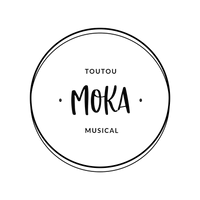Toy Safety Standard ASTM F963
We are very proud at Moka to highlight that our products have received ASTM F962-17 certification. The safety of your coconuts (and ours!) is our number one concern and there was no compromise to be made on this point.
But what exactly is ASTM F963-17 certification? It is a safety standard for toys, covering chemicals and heavy metals, mechanical and physical properties, electrical safety, small parts and flammability. Ensuring compliance with ASTM F963-17 is mandatory under the CPSIA for a wide range of toys and other products for children under 14 years of age.
Let's see them in more detail.
Restrictions on chemicals and heavy metals:
ASTM F963-17 covers testing methods to ensure that the amount of heavy metals and other restricted substances present in toys, their materials or components does not exceed established limits.
These substances include lead, cadmium and phthalates. Products and materials containing excessive amounts of restricted substances (i.e., above established limits) do not comply with ASTM F963-17.
Mechanical and physical properties:
ASTM F963-17 defines mechanical and physical requirements for toys. Here are some examples:
Sharp points
Safe Design Practices
Small parts
Detachable parts
Mechanical and physical properties have a direct impact on toy design because elements must be implemented at the drawing board in order to comply with ASTM F963-17.
Products with inherently non-compliant designs simply cannot pass ASTM F963-17 testing.
Electrical safety:
The standard also covers requirements related to electrical safety, as some children's toys contain electrical components or batteries. As such, it is important that these components - and therefore, the toy itself - pose no danger to the child using it. The standard states that the battery compartment should only be able to be opened with a coin, screwdriver or other tool. (with a screwdriver in Moka's case!)
Small parts:
ASTM F963-17 covers requirements for small objects and small parts, which are subject to mandatory testing in a CPSC-approved laboratory.
Small parts requirements impact, for example, beads, buttons and plastic eyes found on plush toys. This also impacts parts which can be removed, broken or detached by a child, which in turn can pose a suffocation hazard.
Flammability:
Some toys need to be tested to ensure they are not too flammable to potentially avoid situations where a child is playing with them near a heat or flame source.
Hoping to have been able to better enlighten you on the importance of safety certification and reiterate our pride in having it so that parents can sleep soundly when their most precious possession in the world, their child, is sleeping at next to his Moka.

Leave a comment